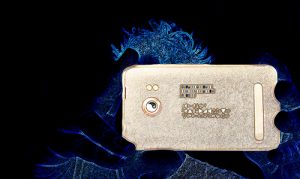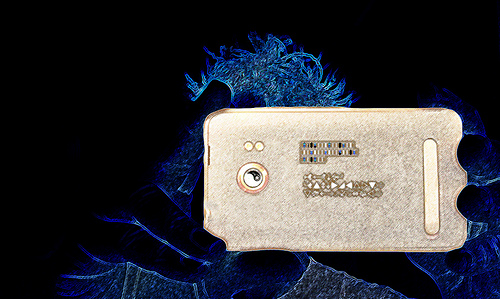I wake up. I don’t know where I am. This has happened every day for a very long time. But I don’t remember. Until I look at my phone. It says: “Tarmo, you have no short-term memory.”
Welcome to the demented future.

The daily life of demented people currently is horrible. They wake up every day in a hospital-like room and don’t know what’s going on. They will be worried that something’s wrong. Every day. The usual solution is to use drugs to pacify people. There are certainly better places to wake up after memory loss than a hospital, so redesigning elderly care can help with this problem.
But I have different plans for my demented future.
I’ve already offloaded much of my daily routines to my smart device (currently a phone, but that’s not important; I used PalmPilots in the 90s). I wake up, I pick up the phone. I check the daily schedule, and plan my day. I don’t make an attempt to memorize my calendar. Why would I? I have better things to do. I am completely dependent on this smart device to help me be a productive member of society each day. And that is a good thing. Devices can be replaced.
If I lose my phone or break it, I can buy a new one. All data is stored and synchronized into the cloud, so I lose nothing.
But I only have one brain. If I lose it, there’s no replacement.
So it’s a manner of risk control to learn to be dependent of these devices. When your brain goes and your memory stops functioning, you have a backup. The only thing you need to remember is that you have a phone and you need to check it every now and then. It will handle the rest.
So back to my demented future:
After the initial shock of being told I’ve lost my memory, I understand that I must fully rely on my phone. My previous memories may be from two decades ago. People may have died, and I’m in a different setting. So I consult my phone to find out the date (“Ooh, I’m 23 years into the future! How exciting!”), check if I have any friends left (Google+ or Facebook or whatever people use then), look at my calendar and allow the device to navigate me to the breakfast table, then to various errands around the city. In the evening I return to my place of residence. The phone reminds me to record a 60 second video reflection of my day. I do that. Tomorrow will be a new day, and I will be a new person. This reflection will be waiting for that new person in the morning.
Depending on the severity of the dementia, using a device as memory backup and task management can prolong my productive working life. I may still be useful in drawing on my vast experiences to help others, even if my day-to-day memories are a bit fuzzy. As long as I mark things down into the device, it will continue to guide me to be productive.
If as some point I degrade even further, someone close to me, or a nurse, could be given access to the data I have. So when I wake up, I will have today’s calendar, filled by someone else, and I will happily follow that and keep out of trouble. If nothing else, I can play Angry Birds or listen to excellent podcasts for most of the day.
Of course, when this scenario is taken to the extreme, I might not be needed at all. After death, all the data collected about me can power a simulation of me. Whether purely virtual or with some robotic body doesn’t really matter. Most people online might not notice the difference between a person’s tweets and his simulated tweets.
A new category of spam: posthumous status updates.

Sounds like Chihiro Shindou’s story in “ef – a tale of memories”: http://myanimelist.net/anime/2924/ef_-_a_tale_of_memories
weel done, Tarmo! I agree with you
🙂
Alessandra